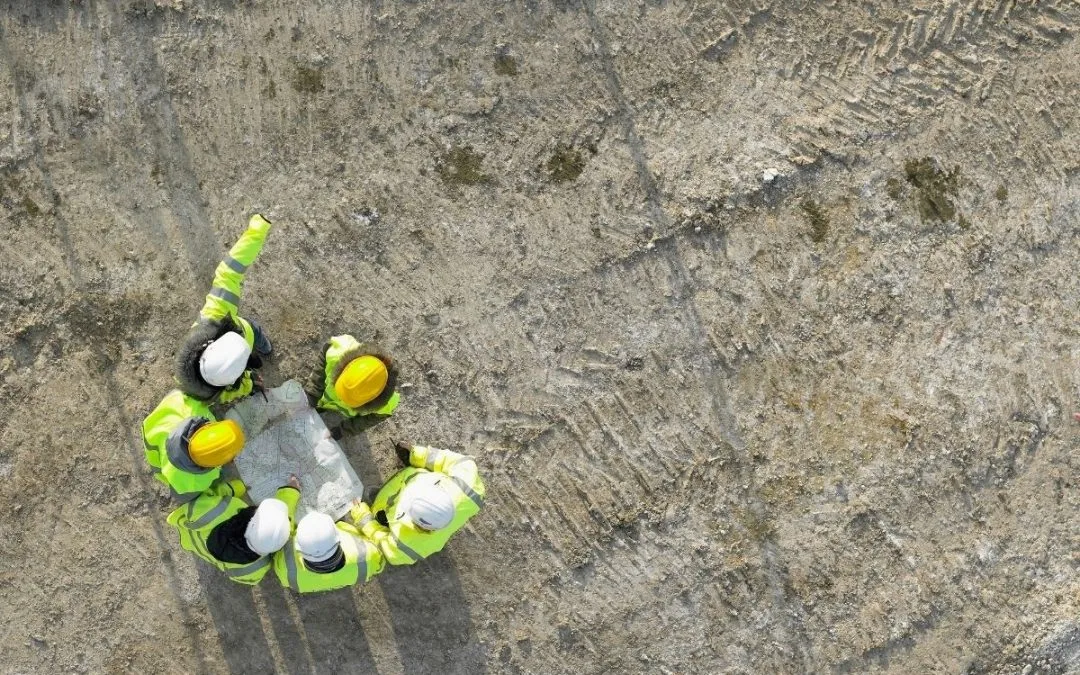Published January 28, 2021
When people ask what civil construction is, I find it quite ironic. Don’t get me wrong; it’s good to be curious, but there’s a bit of irony in that question. That’s because the moment you step outside of your house, there’s a high probability that you’ll be surrounded by several products of civil construction. In this article, we’ll be covering the exact definition of civil construction and how it impacts our lives today.

What is civil construction?
In its most basic definition, civil construction is the creation of any infrastructure involved with water, earth, or transport. Quite literally, it is what shapes the world around us, responsible for building most of the structures around us that aren’t privately-owned.
Civil construction is routinely defined as a branch of civil engineering that concerns itself with the design, development, and maintenance of both natural and physically built environments. This includes buildings, roads, railways, bridges, airports, dams, sewer systems, tunnels, and so many more. The civil construction industry consists of a variety of individuals, companies, and contractors who work on the planning, design, and development of different infrastructure.
Civil engineering is one of the oldest engineering disciplines, tracing its roots back to ancient times. Since the beginning of time, this discipline has played an integral role in society, primarily through structural engineering and design. This is a crucial element in civil engineering that ensures a building is structurally sound to account for a specific maximum load.
Interestingly enough, civil projects are more likely to fall under the umbrella of civil engineering as opposed to construction because of the need for comprehensive planning and coordination between engineers and other specialists before construction even begins. Furthermore, it is crucial that contractors bidding on civil projects have extensive knowledge in areas like grading, erosion control, legal regulations, and the like.
What are the work or activities performed in civil construction?
Civil construction encompasses everything from the planning to the maintenance of a certain structure or environment. There are many tasks between those two points, and here are a few key activities:
- Collaborating with governments, clients, and other professionals
- Thoroughly assessing and evaluating the suitability of land as potential building sites for new infrastructure
- Adhering to government and legal guidelines and regulations throughout the planning, creation, and maintenance of said infrastructure
- Creating comprehensive cost estimates and contracts
- Creating infrastructure plans and having them approved by the government and local authorities.
- Tendering the contracts and hiring contractors and subcontractors
- Supervising and controlling the construction project to ensure it matches the plan, stays on schedule, and does not incur delays and extra costs.
What are the job opportunities and roles in civil construction?
There are many jobs and roles available in civil construction that they’re too many to name at this point. Here are some of the most notable ones:
- Civil Engineers
- Estimators
- Construction/Project Manager
- Supervisors
- Construction Expeditors
- Construction Workers
- Electricians
- Construction Foreman
- Surveyors
- Demolition Staff
- Dump Truck Operators
How do I get a career in civil construction?
- Become a civil engineer – The path many people take to get into civil construction is earning a bachelor’s degree and getting certified in civil engineering. Students undertake several essential courses in math, physics, mechanics, fluid dynamics, engineering, and architectural design within these programs. After completing this program, you will need to undergo an internship, choose a specialization, and pass relevant certification exams.
- Become a civil construction worker – If you enjoy doing practical outdoor work, becoming a civil construction worker might be for you. The job can be physically taxing, so you’ll need to be physically fit and active to keep up with its demands. To become one, you will typically need to complete a traineeship or apprenticeship.
- Fulfill other roles – Besides civil engineers and construction workers, there are a lot more roles to fill in a civil construction project. Obtaining a diploma in Engineering Technology is a fantastic way to start, as it opens up possibilities in becoming a project manager, estimator, or other similar roles.
Interested In Cutting Technologies?
For nearly 40 years Cutting Technologies (CTI) has been the go-to demolition contractor for technically demanding, one-off jobs. Our wealth of experience enables CTI to bring “outside-of-the-block” approaches to achieve the impossible. Contractors trust CTI to get the job done right. Take a look at our demolition services on our website.

About The Author
Terrence Tan Ting is an industrial engineer by profession but a full time writer by passion. He loves to write about a wide range of topics from many different industries thanks to his undying curiosity.

About The Author
As an avid traveler, Judy Ponio loves to write blogs about traveling and how to save money when making international calls.

